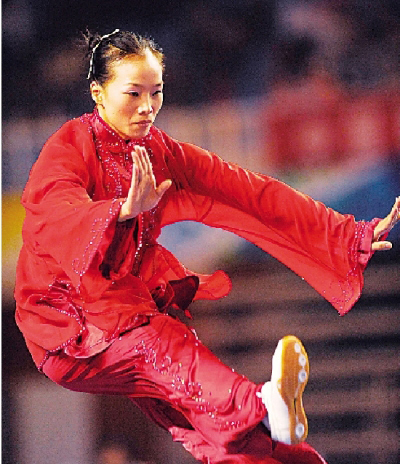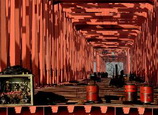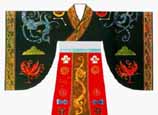
 |
| (Photo/Xinhua) |
Martial arts
Cangzhou is famous not only for its magicians, acrobats, jugglers and other performers, but also for its martial arts practitioners. The city is also widely known as the "hometown of martial arts." Nearly half of more than 100 martial arts practiced in China are said to have originated in Cangzhou and then been spread all over the country through the canal.
It is common to see old people practicing martial arts in public parks all over China, but in Cangzhou they practice many more schools than tai chi and mulan, which are slower and easier to pick up by seniors. It's common to see swords, knives and sticks all over the parks.
"I started when I was eight years old, but that's nothing special around here," says 76-year-old Ma Honglin, a local celebrity. "My childhood friends and my neighbors' children all did it. We learned from adults in the neighborhood and practiced with each other. One day we heard about a great master in a nearby village, so we all went there to learn from him."
This sounds like a martial arts novel in which the young disciple becomes the master, but it happened less than 70 years ago and it's still happening today. Ma has become the master.
Every day at 6am, he holds free practice sessions in the people's park. The only exception is Chinese Lunar New Year's Day. His students are of all ages and backgrounds and include opera actors who must perform martial arts on stage.
As with other performances, the martial arts culture in Cangzhou also reached its peak in the Ming and Qing dynasties. "By the late Qing Dynasty, it already enjoyed an overseas reputation," says Wang Zhihai, vice chairman of the city's martial arts association.
The martial arts tradition dates back more than 2,000 years. "The development of the canal and Cangzhou's location near major canal cities like Tianjin and Beijing made it a must-see stop for ships and barges with valuable cargo.
Famous bodyguards
Trading companies used to hire guards to protect cargo and valuable products and martial arts masters from Cangzhou were among the most popular guards. Officials also sought their protection when traveling on the canal.
"At one time in the Qing Dynasty, 90 percent of the famous bodyguard companies were in Cangzhou and many had branches in the capital Beijing," Wang says.
The place was so famous that other bodyguards, contrary to tradition, remained silent in reverence when their vessels passed Cangzhou. In general, bodyguards were supposed to yell out their security company's name to warn off robbers as they passed a town. They would also wave their banners. But not when they passed Cangzhou.
















 Pretty model shines at Guangzhou Auto Show Hyundai Motor stage
Pretty model shines at Guangzhou Auto Show Hyundai Motor stage


![]()
